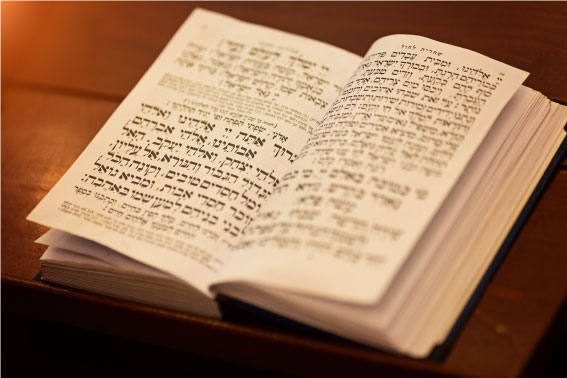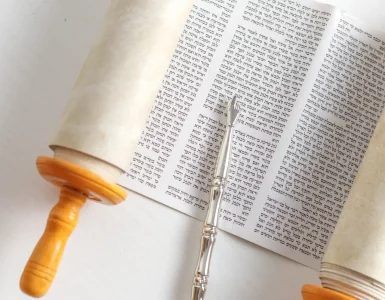Chayei Sara 5781
And Yitzchak went out to converse in the field towards evening.
(Bereishis 24:63)
Medical personnel often work long shifts which may extend through an entire interval for Tefila. This gives rise to the fascinating and important question of whether they are obligated to Daven during that shift.
A person who is occupied with one Mitzva is exempt from performing another Mitzva – “HaOsek b’Mitzva Patur Min haMitzva”. This law is derived by the Gemara (Sukah 25a) from the Pasuk “b’Shivtecha b’Veisecha uv’Lechtecha vaDerech” which implies that a person is only obligated to recite Krias Shema when he is occupied in his own affairs, not when he is in the midst of performing another Mitzva.
Another source for this law (also cited by the Gemara) is derived from the Mitzva of Pesach Sheni. The Torah (Bamidbar 9:6) states, “There were men who had been contaminated by a human corpse and could not make the Pesach offering on that day”. These men were instructed to offer a Korban Pesach on Pesach Sheni. The Gemara explains that they had become contaminated by burying a “Meis Mitzva” – a body of a person that had no one else to bury it – which was justification for becoming Tamei and therefore ineligible to offer a Korban Pesach at its proper time. This also proves that HaOsek b’Mitzva Patur Min haMitzva.
Based on this law, a Braisa (cited by the Gemara 26a ibid.) rules as follows:
R’ Chananya ben Akavya said: Those who write Sefarim [Sifrei Torah], Tefillin or Mezuzos – they, or their wholesalers, or retailers, and all those who are involved in the work of Heaven, including those who sell Techeiles – are all exempt from the Mitzva of Krias Shema, from Tefila, Tefillin, or any of the Mitzvos of the Torah. This fulfills the view of R’ Yosi haGelili, for R’ Yosi haGelili said: HaOsek b’Mitzva Patur Min haMitzva.
This Braisa contains an additional ruling – that a person is not only exempt from other Mitzvos when he is actually performing a Mitzva, but even when he is merely doing a “Hechsher Mitzva” – a preparatory act for a Mitzva (such as writing Sifrei Torah, Tefillin or Mezuzos).
This Halacha is subject to much discussion among the Rishonim and Poskim. Two main questions are relevant to this essay:
- Does the law of HaOsek b’Mitzva Patur Min haMitzva apply when the performance of the first Mitzva does not prevent a person from performing another Mitzva at the same time? For example, when a person is wearing his Tefillin, is he obligated in the Mitzva of Tzitzis at that time or not? This is a matter of dispute among the Rishonim. According to the Ran (on the Rif, Sukah 11a) and other Rishonim he is exempt. According to Tosfos (Sukah ibid.) and the Rosh (Sukah 2:6) he is not.
- Does the law of HaOsek b’Mitzva Patur Min haMitzva apply when a person’s motive is to earn a living rather than to perform a Mitzva? As stated, even those who are involved in writing or selling Sefarim, Tefillin and Mezuzos, are exempt from other Mitzvos while doing so. Is this true even when their motivation to perform these tasks is not l’Shem Shamayim?
The Shulchan Aruch (O.C. 38:8) rules:
Writers of Sefarim, Tefillin or Mezuzos – they, or their wholesalers, or retailers, and all those who are involved in the work of Heaven – are exempt from laying Tefillin all day, aside from during the time for Krias Shema and Tefila.
The Rema comments:
But if they need to perform their work during the time for Krias Shema or Tefila, then they are exempt from Krias Shema, Tefila and Tefillin. For anybody who is occupied in a Mitzva is exempt from another Mitzva if it would require an effort to perform it [which would detract from the first Mitzva]. But if a person is able to perform both Mitzvos at once without an effort, he shall perform them both.
These rulings which are clearly based on the Braisa cited above, appear to rule upon the two questions we cited: Firstly, by exempting wholesalers and retailers from other Mitzvos, it appears that even those whose motive for performing a Mitzva is to earn a living are exempt from other Mitzvos. Secondly, the Rema clearly rules that where it is possible to perform both Mitzvos at once, a person is obligated to do so.
The second of these two conclusions is agreed to by the Poskim, but the first one is subject to dispute. The Magen Avraham (ibid. 8) cites Rashi’s comments regarding the retailers mentioned in the Braisa above. Rashi states: “Retailers who buy from them (from those who write the Sefarim, etc.) in order to sell them and provide them for those who need them.” Rashi implies that a retailer is only exempt from performing other Mitzvos because he intends to provide these Mitzva items to others who need them, but not if his motivation is otherwise.
The Magen Avraham questions Rashi’s assumption from the Gemara in Nedarim (33a) that rules that a person involved in returning a lost item to its owner is exempt from performing other Mitzvos at the time, even if he is to be compensated for his act. This implies that HaOsek b’Mitzva Patur Min haMitzva applies even when there is a financial motivation for performing the Mitzva.
He suggests two answers:
- The person who is returning the lost article is only receiving “Schar Batala” – compensation for the losses he incurs by doing so. His motivation is not for the financial incentive but rather to perform the Mitzva.
- Even if he will profit from his act, it is still possible that his chief motivation is to perform a Mitzva and he merely wants to financially profit from it at the same time.
The Magen Avraham notes that his second answer is only applicable to a person who is returning a lost article on one particular occasion and who can be said to be chiefly motivated by performing a Mitzva even though he expects to earn a profit at the same time. But a retailer of Mitzva items who makes his living from the profits of their sale, cannot be said to be primarily motivated by the Mitzva, even if that is also his intention.
The Mishna Berura (ibid. 24) rules like the Magen Avraham’s second answer. Therefore, the law of HaOsek b’Mitzva Patur Min haMitzva only applies when a person’s chief intention is to perform a Mitzva and not to make a profit. Furthermore, the Poskim imply that this is not judged on an individual basis. Rather, anybody who is performing a Mitzva in the context of his usual employment is assumed to be motivated primarily by the financial benefit and the intention to fulfill the Mitzva is assumed to be secondary. It would follow that medical personnel would not be exempt from Tefila during their shifts, as their performance of the Mitzva of Refua is their job.
However, the Biur Halacha (ibid.) notes that Rashi (from whom the Magen Avraham built his conclusion) only inserted the condition that the protagonist needs to be motivated by the performance of the Mitzva in the case of retailers, not in the case of those who produce the Mitzva items themselves. This implies that those who are directly fulfilling a Mitzva with their acts (such as writing Sefarim etc.) are exempt from other Mitzvos regardless of their motivation. If so, medical personnel who are directly involved in the Mitzva of Refua, would be exempt from Tefila during their shifts, despite the fact that their Mitzva performance is secondary to their employment. However, it is unclear whether the Biur Halacha truly wished to argue with the Magen Avraham and rule this way.
HaGaon Rav Asher Weiss Shlit”a (Shu”t Minchas Asher 1:121) rules that doctors are in fact obligated in Tefila during their shift based on a ruling of the Birkei Yosef (O.C. 38). The Birkei Yosef argued that the law of HaOsek b’Mitzva Patur Min haMitzva cannot apply to somebody who is constantly occupied with one particular Mitzva for this would mean that he never performs any other Mitzvos. Therefore, medical personnel who are occupied with the Mitzva of Refua for the majority of their lives would not be exempt from other Mitzvos and are obligated to make the effort to find a time for Tefila despite their heavy workload. However, in cases where their patient care activities have lasted longer than expected, they would not be obligated to stop in the middle in order to Daven (unless doing so could be arranged very easily).
It barely need be said that this is certainly not applicable in cases of Pikuach Nefesh that would obviously exempt a person from all other Mitzvos. But medical personnel do have a difficult balance to strike, for they must constantly assess whether they have a few spare minutes to Daven in a manner that would not endanger their patients and would not impact on their availability. (For example, it is recommended that they Daven in a place where they are readily available and can be interrupted for urgent matters.)













Add comment